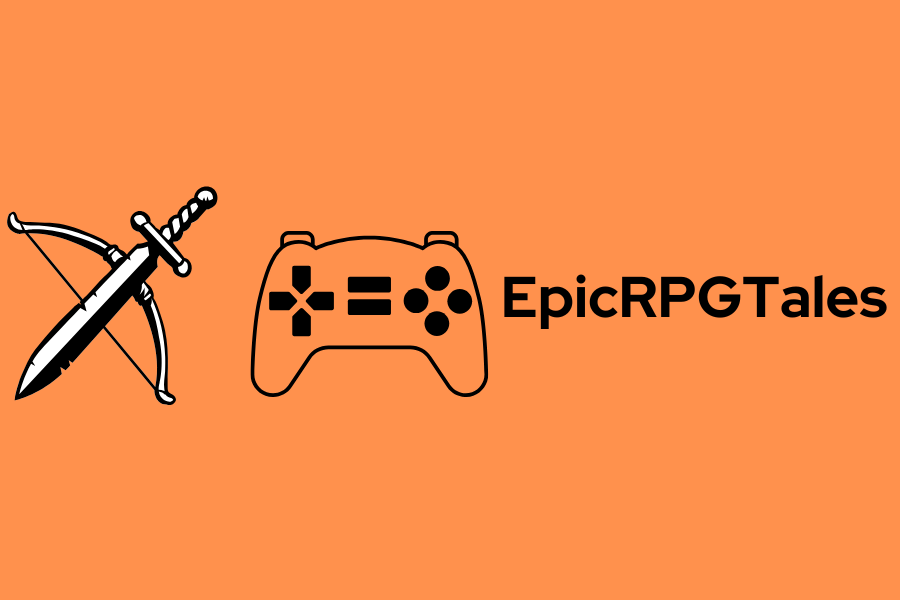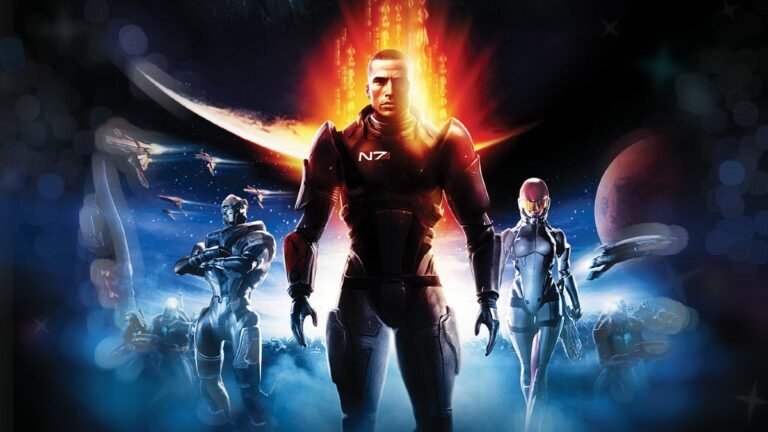Long before BioWare introduced us to Commander Shepard, it was already dealing in sprawling sci-fi RPG spaces with Star Wars: Knights of the Old Republic. PC players tended to get all the good Star Wars games, and here was one that felt like the Star Wars game. However, the game also made its way to Microsoft’s hulking new Xbox console, and quietly, it has historically been as crucial to the platform as Halo, mainly because it laid the groundwork for BioWare’s very own sci-fi RPG universe, which became a definitive part of Xbox history.
Having impressively handled Star Wars, BioWare went all Star Trek for Mass Effect (with a bit of the Battlestar Galactica reboot in there for good measure). Set in a future where interstellar travel is now possible thanks to mass transit devices called Mass Relays. The history behind this tech is rumored to be built on the work of an extinct alien race known as the Protheans. So now we have a conglomerated body of governments controlling law and order across the galaxy. This is the Citadel Council, and humans help run it alongside asari, salarians, turians, and more. Races working together for galactic peace means there’s going to be those outside of it, and while some are indifferent or apprehensive about the Citadel Council, others are more hostile, like the Borg-inspired AI race known as geth.
Players are given the role of Commander Shepard, the first human member of Spectre (Special Tactics and Reconnaissance, not Blofeld’s motley crew of villainy), a spacefaring agency with broad authority from the Citadel Council. Players can choose between a male and female version of Shepard (with voicework from Mark Meer and Jennifer Hale respectively) and tailor them to their visual whims.
Mass Effect blends the narrative-led experience from JRPG’s with a blockbuster Western sheen. Shepard is already a swaggering hero by the time we meet them, but they still go on the hero’s journey. They learn of a greater, overarching threat whilst dealing with relatively smaller ones, and they pick up a motley crew of memorable characters along the way.
Rather than pack a sweeping epic into one story, BioWare decided early on that this would be a trilogy, where Shepard’s journey across the stars would inevitably lead to a battle against the Reapers, an ancient race of synthetic-organic starships thought to arrive every 50,000 years to wipe out all organic populations.
In true RPG fashion, Shepard kind of stumbles into that wider plot after they have a vision depicting a terrible war and mass death. But their catalytic drive in Mass Effect is the treason of another Spectre member, and trying to convince the Citadel Council of this. BioWare expertly weaves the smaller objective of the present with the ominous incoming one, all while giving us almost episodic tales of other characters and giving players enough of that to make critical choices impactful.
Mass Effect of Choice
The impact of choice is a common problem in gaming, especially in the RPG genre. It was perhaps a little challenging to see how impactful Shepard’s decisions in Mass Effect would be by the end, six years later, but BioWare offered just enough weighty short-term outcomes to at least set out its stall for the trilogy. Playing Mass Effect in 2007, you’d probably have little idea how your decision to save one character over another could change your experience in Mass Effect 2 and 3. The morality and choice of Mass Effect was less subtle than the kind of thing you’d find in the CRPG space, but that’s also what opened it up to a whole generation of players who had grown up with the Eastern approach to RPGs, but not so much of the depth from European and US RPGs of the 80s and 90s.
That Star Trek comparison is especially apt due to the aforementioned episodic flavor Mass Effect has. The lulls, if you will, largely come during Shepard’s time aboard the Citadel starship known as the Normandy. There, they can discuss recent events and general life stuff with the growing crew. But when we depart, it’s onto a new nugget of plot information, the introduction of another character, and undoubtedly some kind of confrontation.
Mass Effect is BioWare showcasing what it has learned from past experiences and effectively catering to the desires of its console-centric audience. Today, it’s almost an endearing prototype when compared to its sequels, but that raw and ready nature is what made it fresh and compelling to Xbox 360 owners nearly 20 years ago.
Is it almost a victim of its success? What has happened to BioWare in the years after Mass Effect 2 has mainly been down to an owner seemingly missing the point of why Mass Effect and Dragon Age (BioWare’s other stalwart RPG born from this era) were connecting with players and like many publishers, trying to crowbar in things that just dodn’t gel with what BioWare or its games are. BioWare became a cash cow with exaggerated expectations placed upon it. While that should be a compliment due to the impact of Mass Effect on not only the RPG space but also video games in general, it’s a frustrating lament as the developers appear to draw closer to their own Reapers.
Read about all the current EpicRPGTales RPG Hall of Fame Entrants here.

